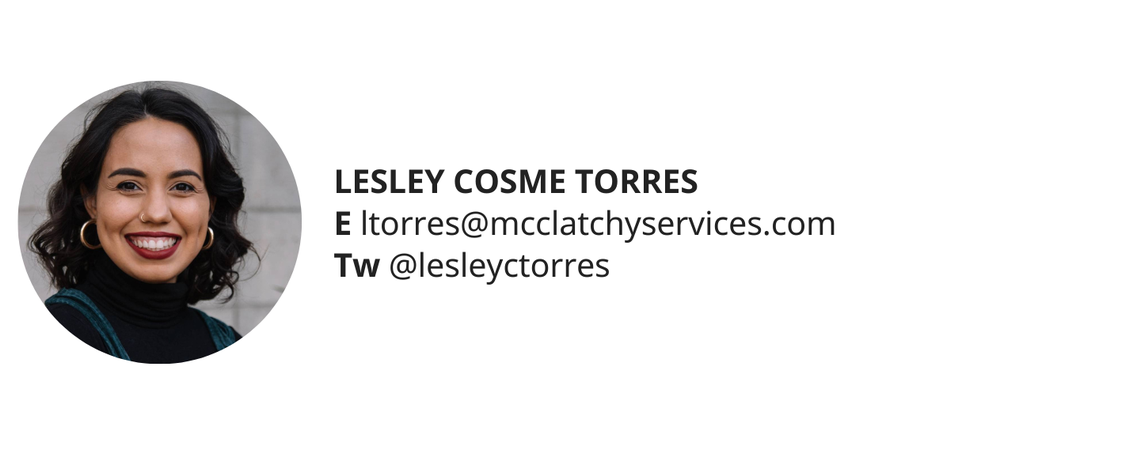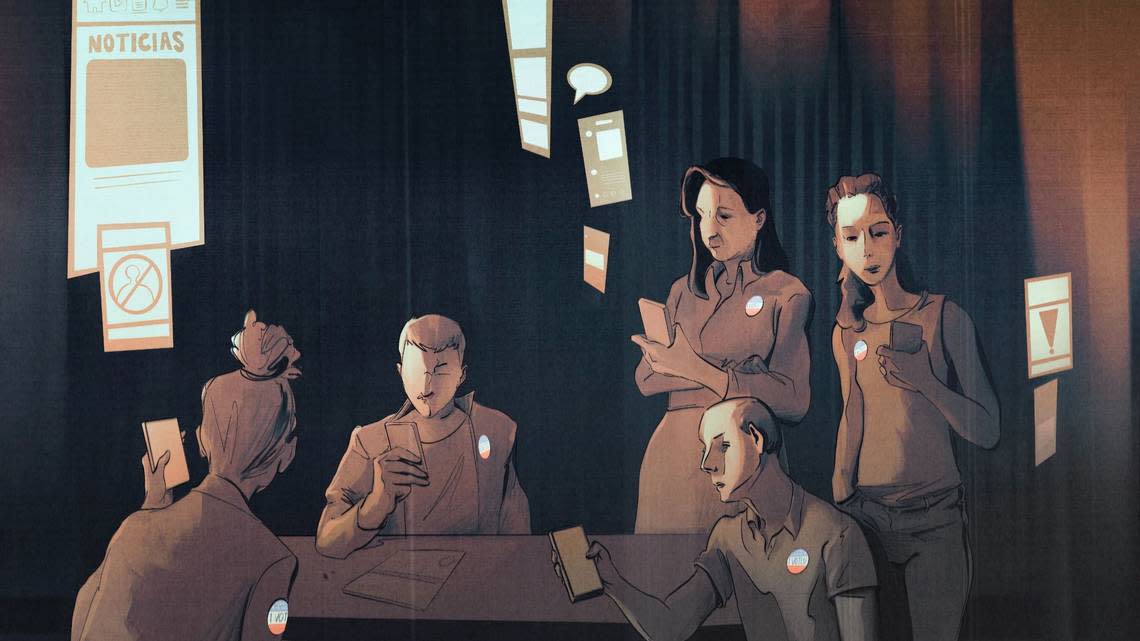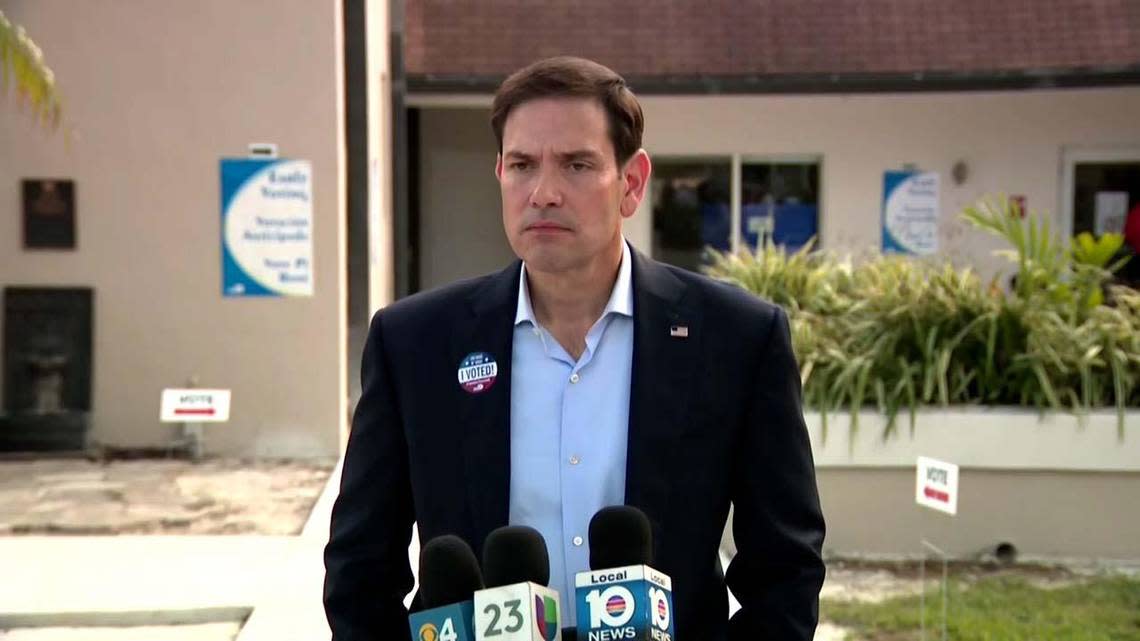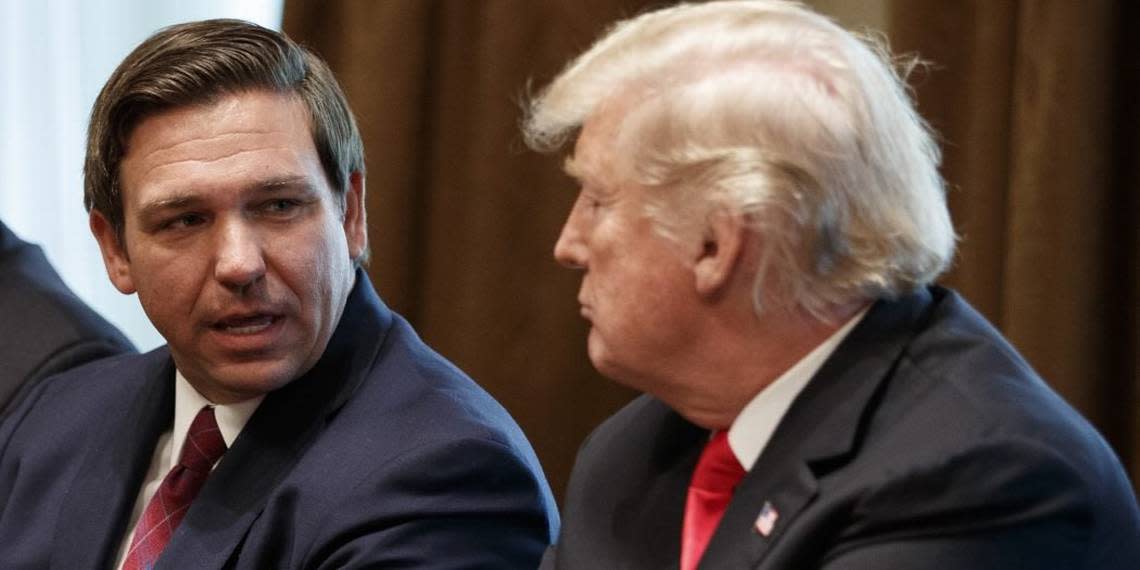Spanish misinformation: Summary of our best hits; my last newsletter
The latest on misinformation and disinformation on Spanish-language radio and social media this campaign season.
Good afternoon, everyone! It’s Lesley Cosme Torres again, here with the latest on Spanish-language disinformation in South Florida elections.
This is my last newsletter. It’s been incredibly interesting following how manipulated information spreads on Miami’s airwaves and to understand how Spanish-language misinformation affects the Hispanic community in Miami.
We wanted to summarize and highlight some of our reporting that we think is important when it comes to understanding how false narratives spread in Spanish.
Enjoy! And thanks for reading.

Is Spanish-language media really a free-for-all? Here’s how it is (and isn’t) regulated

Tech companies and the U.S. government took actions to address Spanish misinfo and disinfo that will inevitably show up on social media during midterms. Critics say the measures weren’t enough, because there are not enough resources to hire culturally competent and bilingual employees. The Herald spoke to the Federal Communications Commission and the world’s largest social media companies.
We highlighted the following examples:
▪ “Although Facebook and the other platforms have been under a fair amount of pressure to eliminate and contextualize disinformation on their platforms, their focus has been almost entirely on English-language material,” said Tony Affigne, a Latino politics professor at Providence College. “So they’ve allowed a great deal of Spanish language disinformation to slip through the cracks.”
▪ In the U.S., Meta, Facebook’s parent company, has announced they’re partnering with five fact-checking organizations to review content in Spanish: AFP, AP, PolitiFact, Reuters and FactCheck.org. They’ve also partnered with Telemundo and Univision to launch fact-checking tiplines in Spanish on WhatsApp, according to a Meta spokesperson.
▪ The FCC, as a complaint-driven agency, will look into instances of what they call “media distortion” to see if they need to take action against the radio or TV station. Yet, they’ve never investigated a case in Spanish.
The sound and the fury: Rubio’s Hialeah drama shows enduring impact of Miami Spanish radio

Christopher Monzon, a Republican canvasser, was attacked on a street in Hialeah. Accusations that the attack was politically motivated quickly followed: First, from a radio interview on Radio Mambí, and then a tweet from U.S. Sen. Marco Rubio echoed the same message, that Republicans weren’t allowed in Hialeah — even though Hialeah is already a highly Republican area that went for Trump in 2016 and then again in 2020.
“It’s a great story if you’re the Rubio campaign,” said Matthew Baum, a public policy professor at the Harvard Kennedy School and co-founder of the Kennedy School’s Misinformation Review. “It fits with the narrative coming from lots of Republicans that it’s the left that’s responsible for violence, not us.”
Gabriel Garcia, a former Proud Boy facing trial for his role in the Jan. 6, 2021, insurrection who helped organize a rally for Monzon, walked back his support. After watching new videos of the moments before the men attacked Monzon, Garcia said the canvasser lied about being a victim of a politically motivated attack, the Herald reported.
“After seeing the new evidence and video, this was not politically motivated and Chris took advantage of the situation,” said Garcia, who serves on the Miami-Dade County Republican Party’s Executive Committee. “I hope he goes to jail for lying to the detective on his BS story and same with little Marco for taking advantage of this situation for political gains.”
How Trump vs. DeSantis is playing on Miami’s conservative Spanish-language media

The Miami Herald, along with Florida International University, has been listening to popular Miami Spanish-language talk radio programs La Poderosa, Americano Media, Radio Mambí, and Actualidad. From calling the attack on Nancy Pelosi’s husband a “telenovela” scripted by Democrats to insisting that liberals and Democrats are “socialists” or “Communists” bent on “destroying the country,” these radio stations seem to be leading the conversation on major GOP talking points, which includes a stream of misinformation promoted and unchallenged by program hosts.
For example, on Ninoska Perez Castellon’s afternoon show the day after the elections, a caller claimed that “Democrats have increased their efforts to ‘steal’ elections since the 2016 vote and have succeeded again,” according to Herald reporters Andres Viglucci and Joey Flechas. “That’s what these Democratic swindlers have created to steal the elections,” the unidentified male caller said, unchallenged by the host.
And in Miami, the effects of this information spread by radio and word-of-mouth is obvious. “It’s everywhere where you really see the insidious effects,” said Fernand Amandi, a Miami-based Democratic pollster. “For example, you have workers come to your house to assist you on a project, and you’re all of a sudden told that your thermostat has a microchip installed to help the Democrats collect information on you.”
How partisan angst, conspiracies thrive in Miami’s Spanish-language media echo chamber

As our Spanish-language misinformation project concludes, Andres Viglucci, Joey Flechas, and I wrote about how in Miami, on Spanish talk-radio and on the most popular social media platforms, conversations are dominated by GOP and conservative voices. Topics range from the border and immigration, to U.S. and Cuban relations, the COVID-19 pandemic, and equating Democrats to socialists.
“The whole thing about misinformation is, they want to attract attention. They want to be relevant,” said Tomás Regalado, a Spanish-language radio commentator and former Republican Miami mayor. He blamed misinformation on the influence of social media and relaxation of radio standards by operators and hosts. “They sound angry and they sound serious. And people take them at their word. I never in my 50 years on radio saw anything like this.”
Many of these false narratives come from hosts and influencers who tend to blur the lines between news and opinion.
This newsletter is part of a project on misinformation in Spanish-language media by the Miami Herald, el Nuevo Herald and researchers at Florida International University. It is funded by Journalism Funding Partners, which received support from the Knight Disinformation Fund at The Miami Foundation. The Miami Herald retains editorial control of the content.
